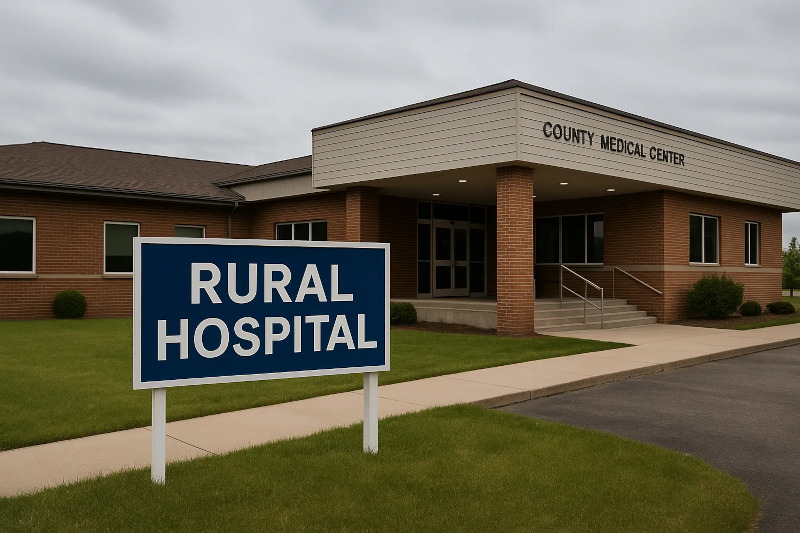Why Rural Hospitals Are Struggling to Recruit Physicians — And How to Solve It in 2025
Rural hospitals are the backbone of healthcare in many parts of the U.S. — yet in 2025, staffing challenges continue to deepen. Physician recruitment in rural areas is reaching a crisis point. If your hospital or clinic is struggling to hire physicians or advanced practice providers (APPs), you’re not alone — but there are proven strategies that can help.
The State of Rural Healthcare Staffing in 2025
Rural healthcare shortages are well documented. Since 2010, more than 136 rural hospitals have closed across the U.S. Many others are operating under severe financial stress.
Source: UNC Rural Hospital Closures
In a recent national survey, 69% of rural hospital CEOs identified physician recruitment as their top challenge. Burnout, retirements, and fewer young physicians choosing rural practice are driving this widening gap.
Source: Navigant Rural Hospital CEO Survey
Where Physician Shortages Are Hitting Hardest
Physician shortages are impacting rural areas nationwide, but certain regions face especially critical gaps:
- Southeast: States like Alabama, Mississippi, and Georgia are struggling to recruit primary care physicians and specialists for rural counties. Many counties in these states are designated Health Professional Shortage Areas (HPSAs) for primary care.
- Midwest: Iowa, Kansas, and Missouri report increasing shortages in family medicine and internal medicine, especially as older physicians retire.
- Upper Midwest / Plains: North Dakota, South Dakota, Nebraska, and Montana face severe gaps in OB/GYN, general surgery, and emergency medicine coverage.
- Southwest: New Mexico and West Texas rural hospitals are competing for a small pool of bilingual and culturally competent providers to serve rural and Native American populations.
- Appalachia: Regions of Kentucky, West Virginia, and Tennessee face unique barriers in recruiting due to geographic isolation and persistent poverty.
In many of these areas, the gap extends beyond physicians to include nurse practitioners (NPs) and physician assistants (PAs) — key parts of the modern rural care model.
New Opportunities and Incentives
Fortunately, new programs are emerging to help address these shortages.
The Bipartisan Primary Care and Health Workforce Act, passed by the U.S. Senate in 2024, provides:
- Expanded loan forgiveness for rural-serving providers
- New training programs focused on rural practice
- Increased funding for rural residency programs
Additionally, many states are offering incentives such as:
- Tax credits for rural healthcare workers
- Loan repayment programs
- Support for telehealth infrastructure to supplement on-site care
Solutions for Rural Hiring in 2025
What can rural hospitals do today to stay competitive in this challenging hiring environment?
- Leverage Guaranteed Placement Programs
Working with a staffing partner that offers guaranteed placements and 90-day replacement policies reduces risk and ensures continuity of care. - Expand the Provider Model
Many successful rural facilities use team-based models that combine physicians with nurse practitioners (NPs) and physician assistants (PAs) to extend care capacity. - Use Flexible Contracts
Offering permanent, locum-to-permanent, or flexible arrangements can attract providers who are open to rural practice but value flexibility. - Partner with a Dedicated Rural Staffing Agency
Momentum Healthcare Staffing specializes in helping rural hospitals and clinics recruit:
- Physicians (Primary Care + Specialty)
- Nurse Practitioners (NPs)
- Physician Assistants (PAs)
- Flexible contract options
- Guaranteed placements with a 90-day replacement policy
- Discounted rates on first 10 assignments

Final Thoughts
Rural healthcare leaders are facing historic staffing challenges — but there are solutions. Whether your facility is in the Southeast, Midwest, Plains, Southwest, or Appalachia, Momentum Healthcare Staffing can help you recruit qualified, committed providers to serve your community.
Let’s build your rural care team today.
Contact us: https://momentumhcs.com/contact/










Recent Comments